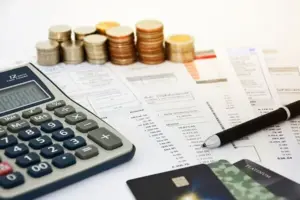Introduction to Debt Management
Debt can be a significant burden, affecting both your financial well-being and mental health. Managing debt effectively requires a clear plan, discipline, and persistence. Whether you’re dealing with credit cards, student loans, medical bills, or other types of debt, understanding the best strategies to tackle your financial obligations can help you regain control of your finances and, ultimately, your peace of mind.
Understanding Your Debt Landscape
Before you can effectively pay off debt, it’s important to know exactly what you owe and to whom. Start by listing all of your debts, including the total balance, interest rate, and minimum monthly payment for each. This will give you a complete picture of your financial obligations and help you identify which debts are costing you the most over time. Having clarity about your debt landscape allows you to approach the repayment process with purpose and efficiency.
Budgeting and Expense Tracking for Debt Reduction
A solid budget is the foundation of any successful debt repayment plan. Begin by analyzing your income and expenses to identify areas where you can cut back. Use expense tracking tools or apps to monitor where your money goes each month and allocate more of your income toward debt repayment. Sticking to a budget may require some sacrifices, but it’s a critical step in freeing up funds to pay down your debts faster.
Prioritizing Debts: Debt Avalanche vs. Debt Snowball
Deciding the order in which to pay off your debts is another crucial factor in accelerating your progress. Two popular strategies are the debt avalanche and debt snowball methods. The debt avalanche focuses on paying off high-interest debts first to save money in the long run, while the debt snowball prioritizes smaller debts to build momentum and motivation. Choose the approach that aligns best with your financial goals and psychological preferences.
Increasing Income to Accelerate Debt Payoff
Sometimes, cutting costs isn’t enough to make a significant dent in your debt. Increasing your income can help you pay off debt more quickly. Consider taking on a side hustle, freelancing, or selling items you no longer need. Even small boosts in income can have a meaningful impact when those extra earnings are directed solely toward debt repayment. Every additional dollar counts.
Automating Payments and Avoiding Late Fees
Late payments can result in hefty fees, higher interest rates, and damage to your credit score. To ensure you never miss a payment, automate them whenever possible. Automation takes the guesswork out of paying bills and guarantees that your payments are made on time. Additionally, automating payments can save you from potential penalties and keep you on track to reach your debt-free goals faster.
Negotiating Lower Interest Rates
If high interest rates are making it difficult to pay off debt, negotiating with your creditors could be a game-changer. Many lenders are willing to work with you if you have a good payment history or if you’re facing financial hardship. Lowering your interest rates can reduce the total cost of your debt and make your monthly payments more manageable.
Utilizing Balance Transfers and Consolidation Loans
Transferring high-interest debt to a credit card with a lower introductory rate or consolidating multiple debts into a single loan can simplify your repayment process and save you money. Balance transfer cards and consolidation loans often come with lower interest rates, allowing you to focus more on reducing the principal balance. However, be mindful of fees associated with these options and read the terms carefully before proceeding.
Avoiding New Debt Accumulation
While you’re focused on paying off existing debts, it’s essential to avoid taking on new ones. Resist the temptation to rely on credit cards or loans unless absolutely necessary. Create an emergency fund to cover unexpected expenses and build financial resilience. Staying disciplined and avoiding new debt will ensure that your efforts to pay off existing obligations are not undermined.
Celebrating Milestones and Staying Motivated
Paying off debt can be a long and challenging process, so it’s important to celebrate your progress along the way. Acknowledge milestones, such as paying off your first loan or reaching a significant repayment percentage. Treat yourself to small, non-financial rewards to stay motivated and remind yourself of the benefits of your hard work. Maintaining a positive mindset is key to staying the course.
Seeking Professional Help When Needed
If managing your debt feels overwhelming, seeking help from a financial advisor, credit counselor, or debt relief agency can provide valuable guidance. These professionals can offer tailored strategies, negotiate with creditors on your behalf, and help you create a realistic repayment plan. Don’t hesitate to reach out for support if you’re struggling to make progress on your own.
A Sustainable Path to Debt Freedom
Achieving debt freedom requires persistence, careful planning, and a commitment to long-term financial health. By understanding your debt, prioritizing repayments, and making strategic financial decisions, you can successfully pay off your debt faster and build a more secure future. Remember, the road to becoming debt-free might be challenging, but the freedom and peace of mind you’ll gain are well worth the effort.
FAQ
Q: How long will it take to pay off my debt?
A: The time it takes depends on your total debt, budget, and repayment strategy. Using tools like debt calculators can provide a clearer timeline based on your situation.
Q: What’s the best repayment method for motivation?
A: The debt snowball method can help you stay motivated by focusing on smaller, manageable debts first and experiencing quick wins.
Q: Should I focus on paying debt or saving?
A: While paying off high-interest debt should be a priority, it’s also wise to build a small emergency fund to cover unexpected expenses.
Q: Are debt consolidation loans always a good idea?
A: Debt consolidation can be helpful if the new terms lower your interest rate and monthly payments. Be sure to read the fine print for fees and conditions.




